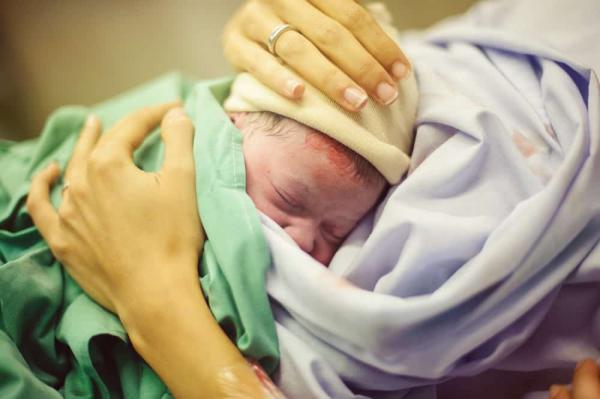
Most women know how they want their child's birth to take place. Whether it's a natural birth at home or a planned epidural once you get to the hospital, parents have expectations of how they will feel during and after the birth. But, childbirth can quickly get complicated and before you know it, you're preparing for a C-section instead of breathing deeply while you listen to the soothing sounds of the ocean. Some birth experiences can be so traumatic that mothers can suffer from Post-traumatic stress disorder or Postpartum depression afterwards.
Recovering from a difficult birth experience takes time and patience from everyone involved. Take the time to help your body and mind on the way to recovery.
1. Rest
Physical exhaustion and lack of sleep can affect your ability to think and make decisions that require higher cognitive functions. Every new mom is exhausted, but none more so than one that's just survived a harrowing experience with childbirth. Mentally and physically, you need to give your body time to heal. Dishes, laundry and cleaning can wait. Your focus should be taking care of yourself and your baby.
Accept offers of help with gratitude. It's okay to let others bring meals, help with dishes or vacuum your home while you recuperate. People want to be helpful and you can offer the same kind of support for other mothers someday. Your body needs time to recover and as your body heals, your mind will be better able to cope with the effects of childbirth.
2. Talk about it
Many mothers struggle with the losing the ideal birth they had imagined. Talking about it with someone you trust gives you a chance to work through those feelings. Your spouse, another family member or trusted friend who offers a listening ear can be what you need to work through your trauma. Look for someone who isn't going to dismiss your feelings and truly listens to your concerns.
Many hospitals have support groups, counselors and other resources available to new mothers and their families. This can offer a safe place to discuss issues of sadness, guilt or other emotions surrounding the birth experience.
If you're not comfortable talking with someone, many people find writing a cathartic experience. Writing it down on paper can help focus your thoughts and identify the emotions you are experiencing.
As you talk or write about your experience, you may discover you need professional counseling. Don't hesitate to talk to your doctor or other medical professional who can give you to the help you need.
3. Meditate
Any activity that releases stress and helps calm your mind can help in the healing process after a traumatic birth. Postpartum yoga and meditation are two that many women enjoy because it can be easily modified for the postnatal body. Yoga pairs poses and breathing to help strengthen the body and calm the mind. It has also been shown to reduce the anxiety and stress that come from dealing with a traumatic event.
Using meditation along with yoga can center a tired mind and body for greater mental clarity. Make allowances for your postnatal body which may need modifications for some exercises. Be sure to get your doctor's approval before you start any kind of physical activity.
4. Proper nutrition
The body and mind function better when they are getting proper nutrition. While your baby does need you for everything, you can take care of his needs better if your body is properly maintained.
Start by drinking plenty of fluids, more than is necessary to quench thirst especially if you are nursing. A recommended 8 -10 glasses a day is a good place to start. Protein, whole grains, vegetables and fruits are going to leave you feeling more nourished than fast food or packaged snacks. Stock your home with foods that are going tonourish your mind and body so that you can better deal with your emotional needs. Follow your doctor's guidelines for postnatal nutrition, including continuing to take prenatal vitamins if directed.
Lastly, give yourself time. It will take time for your body and your mind to heal so it's important to remember to be patient as you rest, talk through your concerns and grief, meditate and focus on eating properly.

